With a new wave of Marvel Now! books around the corner, Marc Buxton looks at the every title that has already launched as part of Marvel’s latest branding initiative. Today, he looks at the first wave. Tomorrow and the day after, he’ll look at the smaller waves that followed. In his secret identity, Marc’s a tutor. Fittingly, the grades are in …
UPDATED: For Part 2, click here. For Part 3, click here.
A+X, Various Writers and Artists. One of the most important things to remember about the first round of Marvel Now! titles was that they sprung out of the events of Avengers vs. X-Men. The crossover event saw Marvel’s premiere teams at odds, pitting hero against hero for about a calendar year. A+X was conceived as a celebration of the two teams working together. Every issue features two short stories seeing an X-Men working side by side with an Avenger. Like any anthology title, the stories are hit or miss, but they are always an interesting experiment in short-form comics. Sales have not been brisk, which is expected for this type of book, but newer fans might jump at the chance to see characters from two separate franchises together. This one seemed to be for the newer, online fans and is a mixed bag at best. Grade: C+. A middling winner, but its longevity is in question.
All New X-Men, Brian Michael Bendis and Stuart Immomen. A rousing and welcome approach to the X-Men books, All New X-Men sees the original Lee and Kirby team come to the contemporary Marvel Universe to interact with the modern X-Men. What could have been a confusing exercise in character indulgence turned out to be a refreshing success story that breathed new life into the X-Men family of books.Bendis has these characters down, particularly Jean Grey and Kitty Pryde, while Immomen visually defines the mutants for a new generation of readers. Grade: A. It is so good to be breathlessly waiting for a new X-Men book each month. A rousing success.
Avengers, Jonathan Hickman and Jerome Opena. After hundreds of issues, Bendis finally exited Avengers, and Jonathan Hickman, a master of long-form storytelling, took over. It’s hard to judge a Hickman project until the end, as each issue is a puzzle piece that changes significance when a reader finally has the big picture. The book moves slowly and sometimes seems to lose focus, but so did Hickman’s Fantastic Four until the last issue that revealed that the writer was always in complete control and leading the reader on one hell of a ride. Hickman added some interesting characters to the Avengers roster like Smasher, Hyperion, and Star Brand. Seeing Cannonball and Sunspot in the big leagues has been a sheer joy. Grade: B. A slow ride that sometimes is a bit ponderous, but Hickman’s masterful twists will change a reader’s perceptions.
Avengers Arena, Dennis Hopeless and Kev Walker. This one was not warmly received when first announced. This book features characters from the beloved Runaways, Avengers Academy, and brand new teen heroes forced to fight, Hunger Games-style, on a mysterious island run by the sociopathic gamesman, Arcade. At times, the book seems to go out of its way to piss readers off by exploiting and killing young teen heroes, but this is all a brilliant meta façade by Hopeless. The writer is revealing the real story slowly while toying with the readers’ perceptions about the nature of death in comics and how fandom reacts to it. A brilliantly conceived series that is not at all what it seems. Grade: A- . Creatively brilliant, sales seem to have been hurt a bit by fan rage and preconceived ideas what the story might be. This is not just a Hunger Games rip-off or an exercise in angering fans; it is a meditation on death, villainy, and heroism. A daring and worthy experiment.
Cable and X-Force, Dennis Hopeless and Salvador Larroca. One of two X-Force books relaunched in Marvel Now!, this book has been an absolute blast from the beginning. Freed from the constraints of the other X books, Cable and company are a kick-ass, take names, old-school mutant strike force. This is a great place to revisit Hope, Colossus, Forge, and Dr. Nemesis, characters that aren’t players in Bendis’ opus. Hopeless clearly understands his characters and no one in the industry today does action like Larocca. Grade: A-. An unexpected pleasure and an experiment in controlled chaos.
Captain America, Rick Remender and John Romita Jr. After almost a decade of brilliant black ops-style Cap stories by the masterful Ed Brubaker. Remender decided to take a different route and explore the sci-fi elements of the character. Aiding the writer is the world-building skill of Romita Jr. It may not have been the Cap book people thought they wanted, but it’s been one hell of an emotional and harrowing ride. The tragic conclusion of the first arc returns Cap to his man out of time role. Grade: B. Book suffers from decompression, but the world-building and fresh take on Cap make this a fascinating read every month. Not everything works, but when it does, like the end of the first arc, it packs a serious punch. Remender might want to see if he can shorten his arcs to allow a more natural flow of concepts and emotions.
Deadpool, Brian Posehn, Gerry Duggan and Tony Moore. A hilarious take on Deadpool by two skilled comedy writers and the co-creator of The Walking Dead, lots of fart and dick jokes that conceal a well-paced story and thoughtful heart. Fans that love Deadpool are seeing the Golden Age of the character. Fans who couldn’t care less won’t be impressed by the masterful creative team’s attempts at making the character relevant. Grade: B. The best possible quality one can expect from a Deadpool book, seriously funny and original. If you like this sort of thing.
FF, Matt Fraction and Mike Allred. When the Fantastic Four disappears, it is up to Ant Man, She-Hulk, Medusa, and Ms. Thing to take up the reigns as the World’s Greatest Heroes while running the FF’s school for young, brilliant minds. The book is a sheer delight and an example of postmodern super-hero comics at its finest. Seeing Scott Lang deal with the death of his daughter, the heroic Stature, rips the heart out with a vicious intensity. These poignant moments are juxtaposed with the hilarious antics of the FF’s students as rendered by the comedic master Allred. It’s a shame Fraction’s run was aborted so the writer can work on his Inhumans project because something special was being created here. Grade: A+ A+ A+. As good as it gets, too bad it ended early.
Fantastic Four, Matt Fraction and Mark Bagley. It’s odd since Fraction nailed FF so perfectly, but his Fantastic Four felt a bit stilted. Maybe there was too much tension between the characters as they explored the unknown reaches of space with Reed’s secrets casting a shadow over what could have been a fun adventure. All that being said, the time travel story with Ben on Yancy Street may have been the greatest Thing story ever. Grade: C. A good try, but all the energy was over in FF.
Fearless Defenders, Cullen Bunn and Will Sliney. What started out as an annoyingly boisterous, trying-too-hard-to-be-hip team book, ended up being a very fun title thanks to the introduction of a new alter ego for Valkyrie and some good character work with Misty Knight. Too bad the book got canned as it just got good, but too many people jumped ship with the first, pedestrian arc. Grade: C+. A Defenders book will survive someday, maybe after Netflix.
Guardians of The Galaxy, Brian Michael Bendis and Steve McNiven. With the movie coming, Marvel had to pull out the big guns to make sure the book survived, and boy, did they. A book where anything can and does happen from the revelation of Tony Stark’s Star Trek fetishes, to his unlikely friendship with Rocket Raccoon, to Star Lord’s iconic origin, to the introduction of an Image character to the Marvel Universe, this book has it all and then some. McNiven’s visuals are genre defining. Grade: A. If the film is going to be half as fun and unpredictable as this book, August 2014 can’t get here fast enough.
Indestructible Hulk, Mark Waid and Leinil Francis Yu. Mark Waid, as he is wont to do, defines Hulk for the next decade. Changing gears from the Jason Aaron run before him, Waid makes Banner an Agent of SHIELD and a blunt instrument wielded in the name of making the world better. The book moves at breakneck pace, as Yu proves he can draw anything. Hulk is usually a tough nut to crack without repeating what came before, but man, do Waid and Yu nail it. Grade: A. Any media can borrow from this book at any time. More please.
Iron Man, Kieron Gillen and Greg Land. The book started off slow, with an uneven sci-fi story about Stark in space. Once Gillen returned to Earth, he found his voice with the “Secret Origin of Tony Stark.” This take on Iron Man is very different from Matt Fraction’s long run on the character, and once Gillen settled in, things got very interesting, very quickly. Land seems uncharacteristically restrained and less … tracey. Grade: B. Seemed like the wrong voice on the wrong character at first, but Gillen has been hitting it out of the park since his second arc.
Morbius: The Living Vampire, Joe Keatinge and Richard Elson. The first Now book that got the ax, Morbius was a bit generic and lacking in any emotional hook. Readers who arrived expecting horror got a navel-gazing tale of a homeless Morbius battling ’80s punk rock crime lords on the streets of an ungentrified Brooklyn hellhole. Elson’s art was pretty enough, but the book lacked all the gothic trappings that one expects from a Morbius book. Grade: D-.
New Avengers, Jonathan Hickman and Steve Epting. A study in the corrupting nature of power, this Avengers book focuses on the power players of the Marvel Universe. At times, the heroes in this book seem anything book heroic, but this unsettling element is offset by Hickman’s more hopeful Avengers. This book spotlights the impossible choices the Avengers cabal must make in order to protect reality. Epting is a great choice as artist, as he perfectly renders emotions and pathos in his larger-than-life characters. Grade: B. Too many questions to give a definitive grade, but if Hickman spikes the ball like he did at the end of his Fantastic Four, this book will be a must read for years to come.
Nova, Jeph Loeb and Ed McGuinness. Another book to ignite entitled fan rage, Nova has been a fun introduction to a new hero in the Marvel Universe. Fans seem to forget that Loeb did not kill Richard Rider; the writer is simply creating a new Nova to fill the void left when Rider fell. A perfect introduction to the cosmic world of Nova for a new generation of readers but it did so by sacrificing some old reader loyalty. Grade: B. The stubborn, old guard is missing one hell of a ride as Nova has been a blast each month. At times, Sam is a bit generic, but he becomes more likable each issue.
Savage Wolverine, Frank Cho. What started out as a loving tribute to Wolverine and classic jungle comics turned into an artist spotlight book. Gorgeous and indulgent, this book is for the art lovers out there. The stories do not play into the tapestry of the Marvel Universe, but man are they pretty. Grade: C. Missable, but classy.
Secret Avengers, Nick Spencer and Luke Ross. What to do when you are not watching “Agents of SHIELD,” this book is the only place to see Phil Coulson outside ABC or the movies. An homage to all things Steranko, this book is pure class from the art by Luke Ross to the subtle espionage tales of Nick Spencer. Like nothing else on the racks and a breath of fresh air. Grade: B+. How do you get a SHIELD book to sell? Print Avengers on the cover. An amazing book spotlighting Marvel’s black-ops characters.
Superior Spider-Man, Dan Slott and Ryan Stegman. If Avengers Arena and Nova led to fan anger, Superior Spider-man led to the worst elements of fan rage. Dan Slott was the writer who dared to replace Peter Parker with Otto Octavius. What followed was a mob of fans armed with angry message board posts — and death threats. Ugly. Ugly. Ugly. Slott, against all odds, has managed to create a compelling story about heroism and sacrifice and writes one of the most compelling Spider-Man comics in decades, ironically, without the real Spider-Man. Not many fans actually buy that Peter is gone for good but the how and the why of Peter’s return is enough to keep this controversial book fueled with drama and mystery. Grade: A. Everything old is new again as Otto meets all of Peter’s old villains and friends. This is daring storytelling at its finest. Bravo, Dan Slott for having the balls to pulls this one off.
Thor: God of Thunder, Jason Aaron and Esab Ribic. Like a Scandinavian death metal festival but with more smiting, this is the biggest, baddest, balls to the wall Thor comic since Walt Simonson put pen to paper. Esad Ribic brings the grandiosity and Jason Aaron brings the intelligent, fun, and original Thor stories. The God Slayer story was as epic as it gets as Aaron and Ribic squeezed the most out of Thor by introducing elements like Future Thor and Gorr, the God Slayer. Grade A+, by Odin! If the only book that came out of Marvel Now! was Thor: God of Thunder, the whole thing would have been worth it.
Thunderbolts, Daniel Way and Steve Dillon. Another new direction for the Thunderbolts led into a brick wall as Daniel Way had trouble convincing readers that a team with a Hulk would also need Elektra and the Punisher. While containing some compelling team dynamics, this indulgent little exercise in fan service was decompressed to the point of parody. Since Way’s departure, Charles Soule has been doing an amazing job breathing life into a concept that almost died on the vine. Steve Dillon’s copious talents are wasted here even though it is nice seeing him draw the Punisher again. Grade: D. A concept that was forced down reader’s throats and did not go down smooth. It looked good on paper, but putting Marvel’s biggest badass loners together just reminded readers of the definition of the word “loner.”
Uncanny Avengers, Rick Remender and John Cassady. Like in his Captain America, Remender could stand to shorten his arcs, but Uncanny Avengers is a great bit of character work combined with some of the biggest stories being told in the Marvel Universe today. Remender’s Havoc is a fascinating character in this book, a champion of mutant/human peace that has surpassed his brother as an avatar for Xavier’s dream. A great parking spot for characters like Scarlet Witch, Rogue, and Sunfire as Remender deftly weaves in X-Men and Avengers continuity to create some very cosmic storytelling merged with human moments. But when an arc begins, get comfy, it’s going to be awhile. Grade: B+. Cassaday only stayed on a little while and the stories go on forever, but this is a great big thrill for fans of epic Marvel stories in the vein of the Kree/Skrull War or the Korvac Saga.
Uncanny X-Force, Sam Humphries and Ron Garney. No, Virginia, there is not room in the market for two X-Force books. This book had a hard time justifying its existence since Day One. A focus on a handful of female X characters, plus Puck and Fantomex, just kind of doing things. The book was more concerned with Psylocke’s sex life than it was in telling a cool adventure story. A waste of a bunch of good characters. Grade: D. Marvel is merging both X-Force books in the second wave of Marvel Now! The book’s only saving grace was Humphries’ use of Puck and Garney’s art.
Uncanny X-Men, Brian Michael Bendis and Chris Bachalo. Bendis tells the other side of the story, as this book follows Cyclops, Magneto, Emma Frost and their school of mutants that run counter to Wolverine’s school. Bendis introduced a whole slew of new mutant characters to play with, most of which are still finding their story legs. It’s basically a book about the antagonists of the All-New X-Men, which is always a tough not to crack (unless the reader’s morally behind Scott Summers, then this is their heroic narrative). A grand experiment in dual storytelling with too many new characters thrown at readers too quickly. Grade: B-. Bachalo’s unique design sense pulls the book up a few notches. Once the title gains focus it will be as good as All-New X-Men, I have faith.
Wolverine, Paul Cornell and Alan Davis. As every other X book focuses on Wolverine the headmaster, this solo title focuses on Wolverine the hero with a healthy dose of SHIELD and sci-fi thrown in. Cornell gets the character and the stories seem big and important and Alan Davis classes up anything he is involved in. Grade: B+. Not quite hitting the levels Cornell did on Captain Britain, but a compelling study of Logan the man and his strength and limitations.
X-Men, Brian Wood and Olivier Coipel. B-. A team starring all women, this book’s quality varies on which X lady is in the spotlight. Wood’s Jubilee is a delight but some of the other ladies have not been given the story reins as of yet. At times it suffers from being the X book not written by Bendis: It seems the important stuff is happening elsewhere, giving the book a “missable” feel, but Wood fixed that during Battle of the Atom as some of his chapters where the most riveting reading in the X-over. Grade: B-. But it’s going to have to stay at its Battle of the Atom level or get swallowed by the “bigger” books.
X-Men: Legacy, Si Spurrier and Tan Eng Huat. If you ever wondered what a Vertigo X-Men book would look like, here you go. It’s hard to imagine who this book was supposed to be for, but it was a fascinating exercise featuring Legion, the mentally ill son of Professor Xavier. The funkily coiffed mutant tries to find a place in a world where he is judged by his father’s legacy while trying to keep his thousands of dangerous split personalities controlled. An interesting attempt, but failed to find its audience. Grade: C. But Marvel should be proud of trying something so off-center.
Young Avengers, Kieron Gillen and Jamie McKelvie. Speaking of experimental, the sometimes too-cool-for-the-room Young Avengers was one of the freshest, hippest reads on the stands … that no one read. Gillen’s follow up to his Kid Loki explored what being a teenager in the Marvel Universe is really like. The first storyline went way too long, not allowing Gillen to explore his awesome cast quickly enough. But if you want to read some of the best dialogue in comics, this is the place. Grade: A. Despite the high grade and quality, the book was the Avengers book most fans deemed disposable. Shame, because it is amazing.
NEXT: Grading the second wave of Marvel Now! titles.

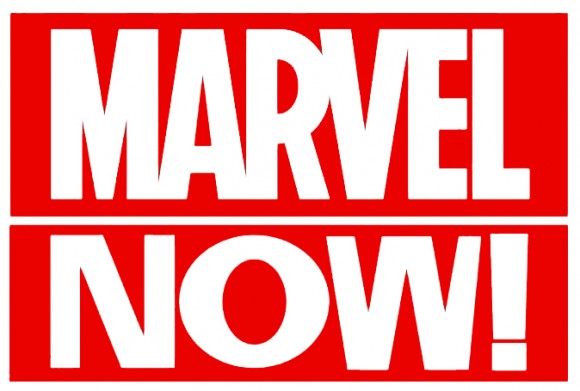
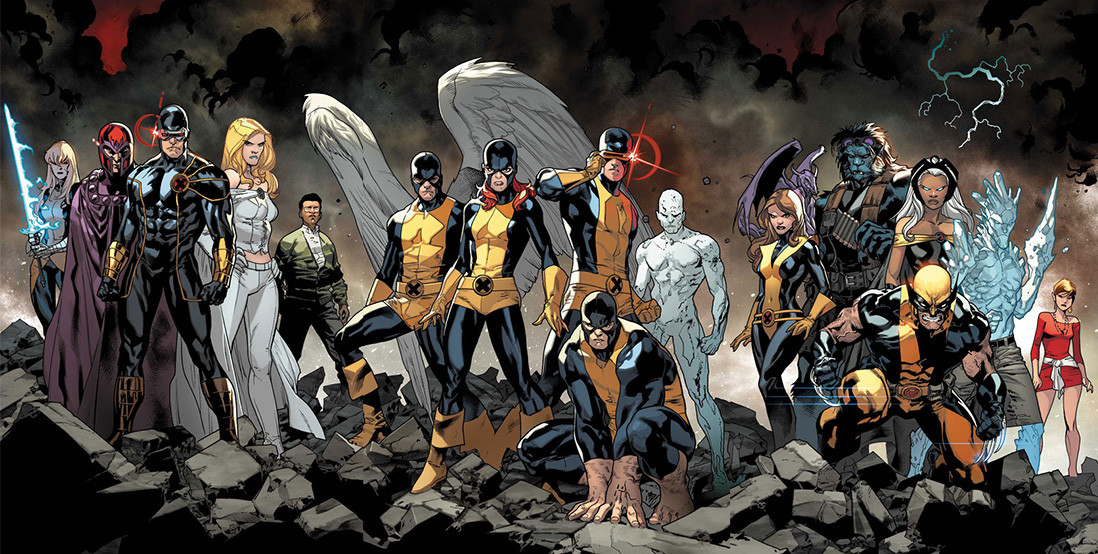
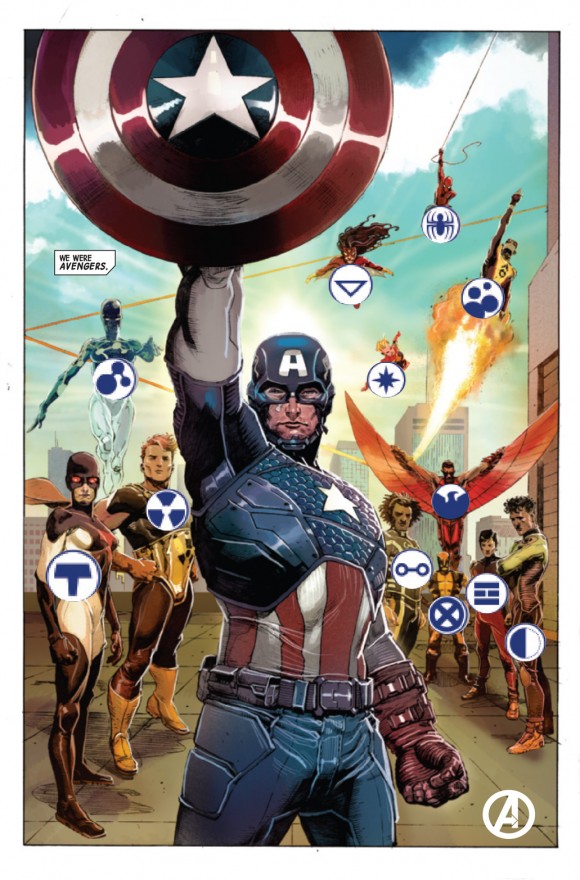
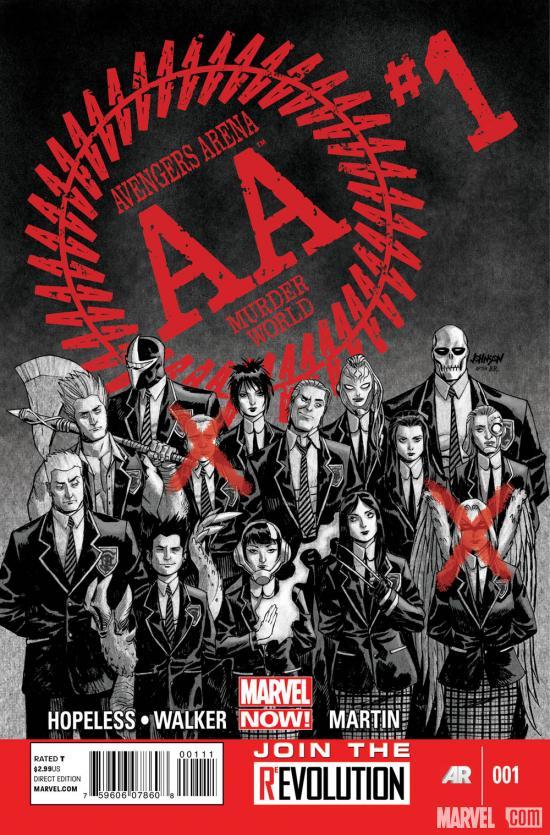
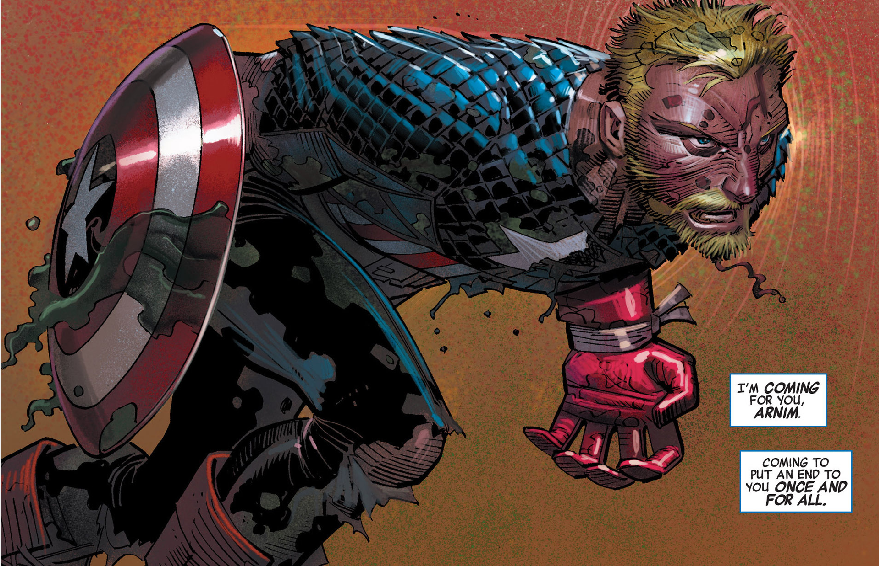
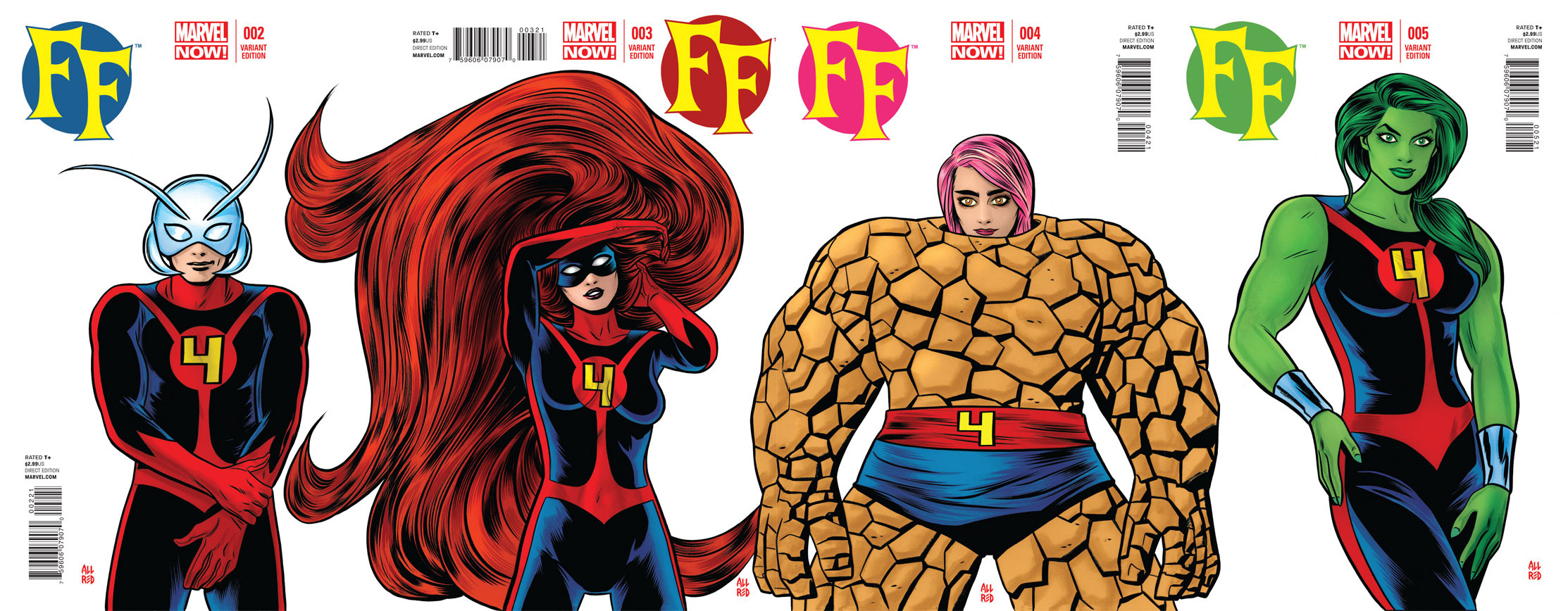
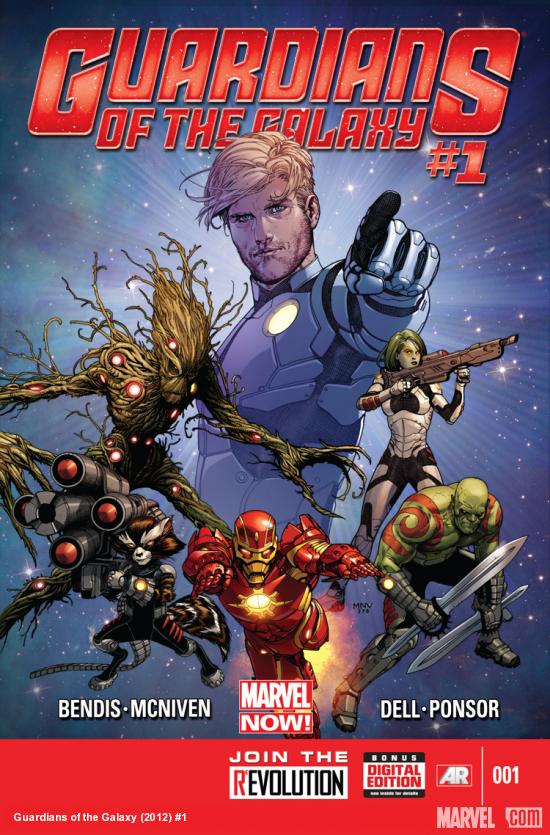
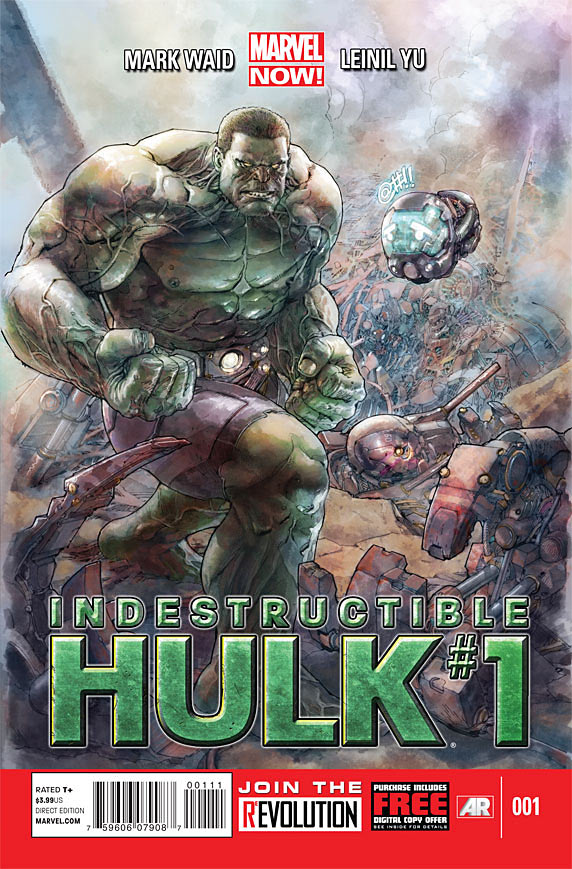
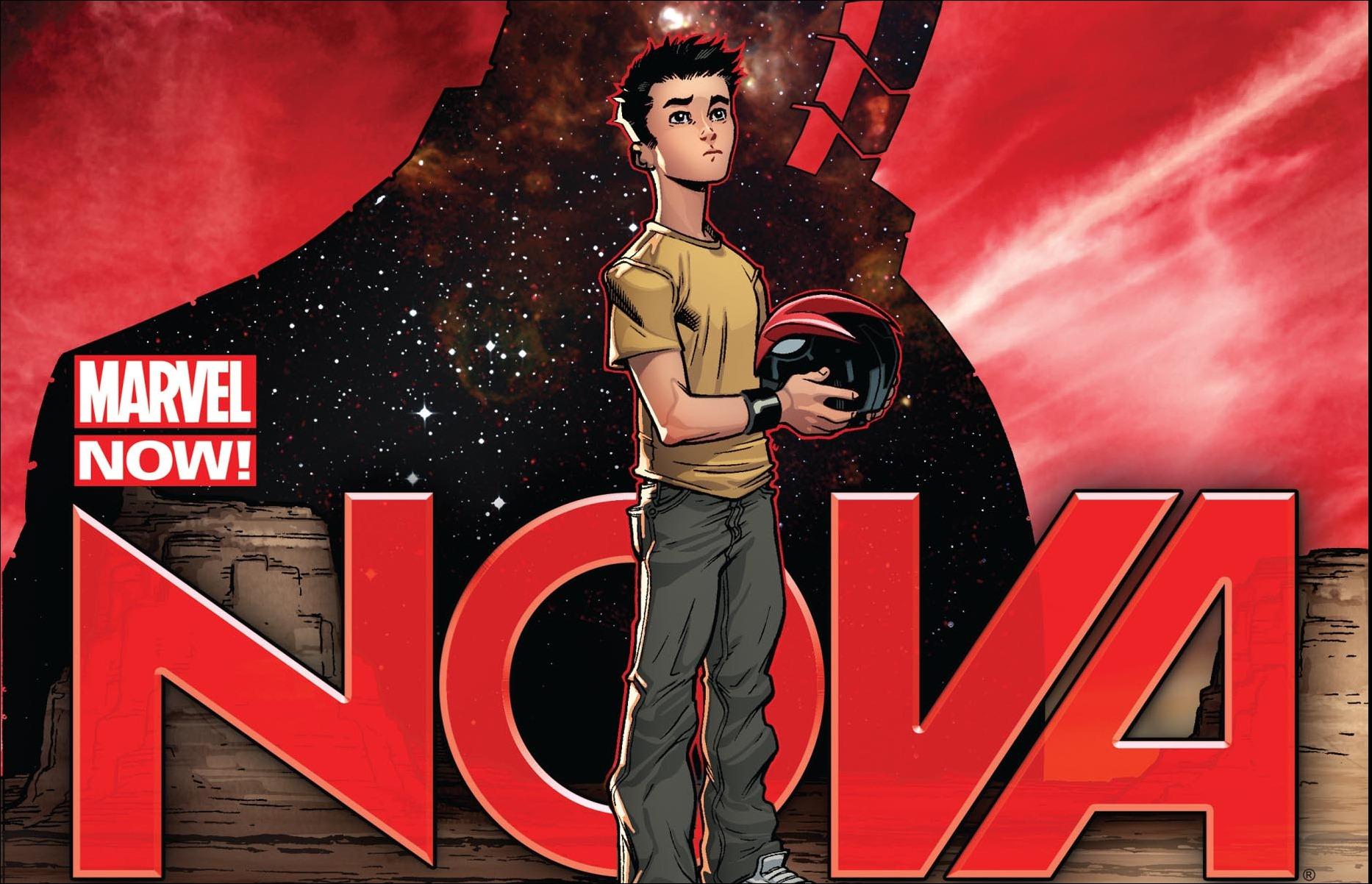
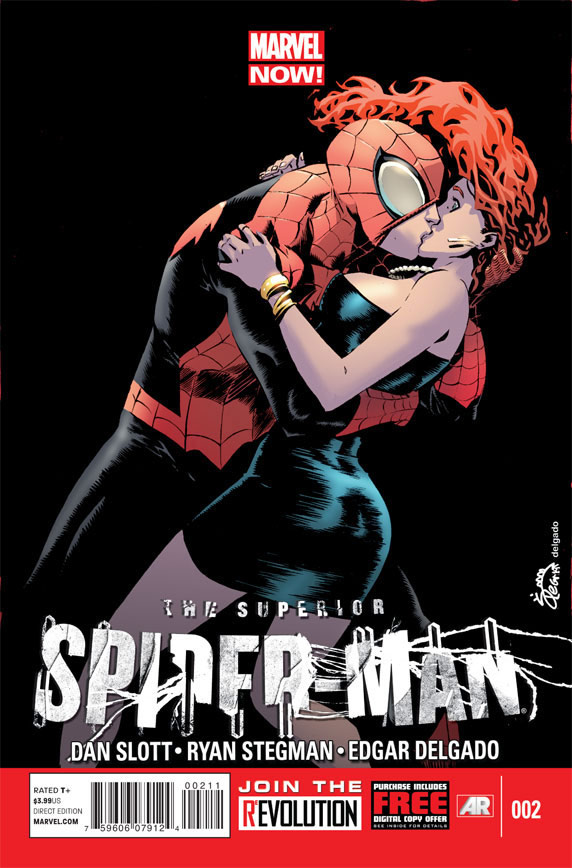
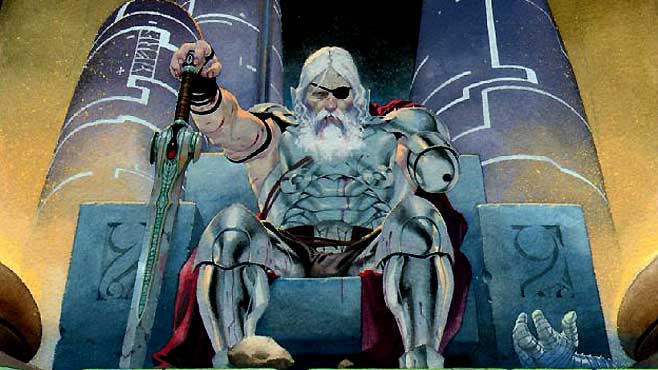
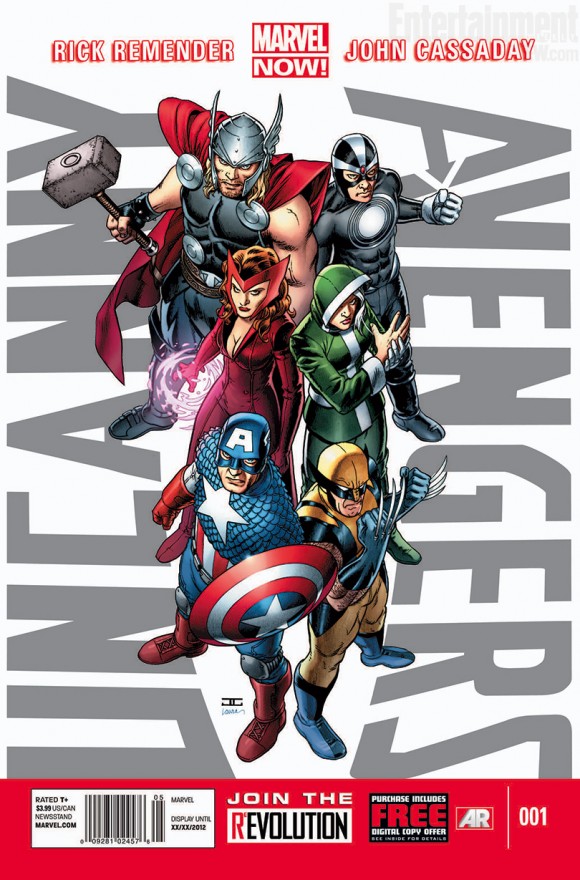
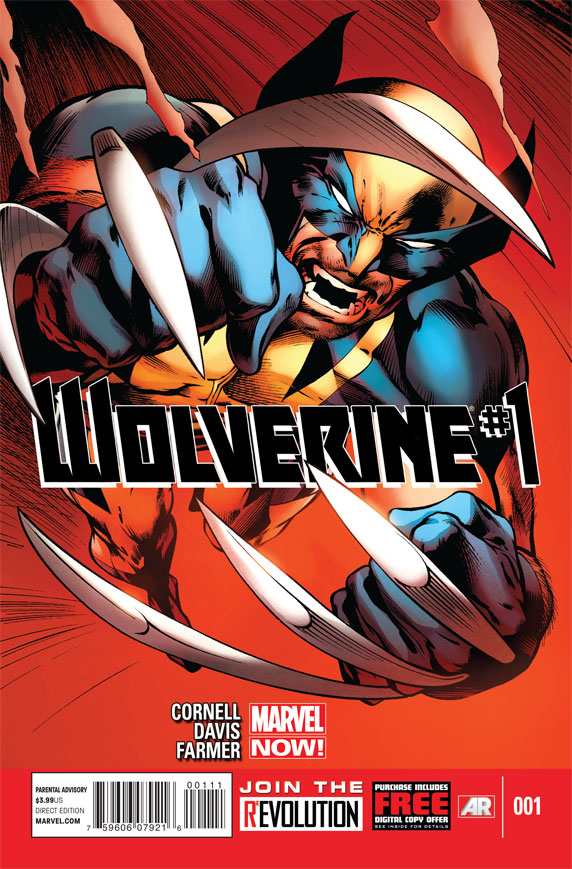
November 25, 2013
I don’t pull a ton of titles from Marvel Now! so I can neither defend nor deny most of these grades…but I can heartily agree with the high marks for Superior Spider-Man! I’m “that guy” who probably hasn’t picked up a Spider-Man book in twenty years because I found the character to be somewhat milquetoast and banal. I tried SSM based on a recommendation at my LCS, and I instantly fell in love with it: put it on my pull list with Superior Spider-Man Team Up and, eventually, Superior Foes of Spider-Man (which is only tangentially-related to the SpOck story but is great nonetheless.) I even went back and got trades for all of Slott’s run on Spider-Man, and I’ve enjoyed it all! He’s just a good writer, his stories are well-weighted with action, drama, and comedy and tale twists that don’t necessarily turn your stomach. One of my favorite titles of 2013, period!
November 25, 2013
A+X – Solid B. Sure some stories are clunky or misguided, but it’s an anthology title. Something I’ve missed from Marvel.
All-New X-Men – A+. And I don’t like Bendis.
Avengers Arena – F. I read the first two or three issues. I found them so distasteful that I couldn’t even read the next one or two I received due to preordering.
Cable & X-Force – D. Larocca is my main problem here. The confusing (or is it just poorly done) story isn’t helping though.
Captain America – B. You guys nailed it. Good, but long. I didn’t bother past the first 10 issue arc.
Deadpool – C. Not terribly funny. Overly long first arc. Went to the well too much with the throwback issues. I dropped it around #13.
Guardians of the Galaxy – B. They are still my Guardians and it turns out that’s all I need to keep reading, but Bendis misses on characterization too much.
Indestructible Hulk – D+. Considering this is the guy writing the phenomenal Daredevil title, it’s shocking that this book came out DOA. A complete dud of a story that had me dropping by #9.
Morbius – No Grade. I forgot they even tried putting this out. That .1 issue of Amazing Spider-Man was so bland.
Superior Spider-Man – B+. Once we got past ghost Peter, things got way better, but those first 9 or 10 issues were a bit painful.
Uncanny Avengers – C-. How many issues do I need to read of Rogue not liking Scarlet Witch. This book was boring and contrived from the start. Dropped it before #10.
Uncanny X-Force – B+. A totally gonzo book that I’m enjoying the hell out of.
Uncanny X-Men – C. Yeah, still don’t care about Cyclops, Emma or neutered Magneto. Even with Bachalo on art.
Wolverine – F-. This is far and away the worst comic book series I’ve read from a big publisher in a while. Painfully slow storytelling mixed with completely uninteresting plotting alongside generically odd Alan Davis work. This doesn’t feel like anyone is trying.
X-Men – B+. Jubilee adopting a kid is freaking me out, probably because I started reading X-Men when she first showed up as an early teen and it reminds me that I’m old. Anyway, interesting stuff from Wood.
X-Men: Legacy – B+. I’m really digging this extended look into Legion’s head. I wish there was a better artist on it every month, but it’s always capable.
November 25, 2013
Outstanding! Glad to see another point of view!